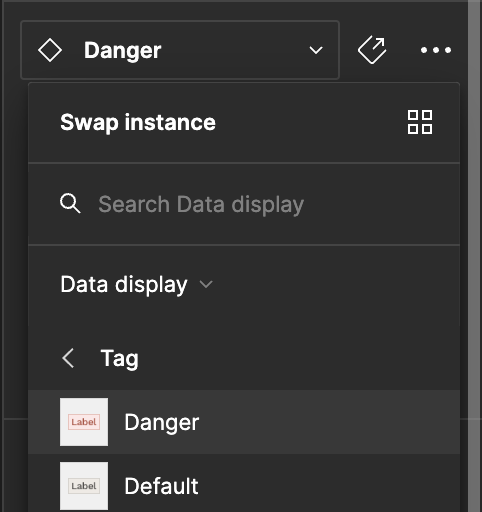Hello, I’m creating a codegen plugin to generate code to match our design system, and I have an issue with the name of the components in my project.
The components are following a strict naming convention:
Component name > States
For instance:
Button > Primary
Button > Danger
Tag > Primary
Tag > Danger
In my example, the name of the components are the same (Primary & Danger), so I’d like to know if it was possible to get the name of its “parent” (Button & Tag).

